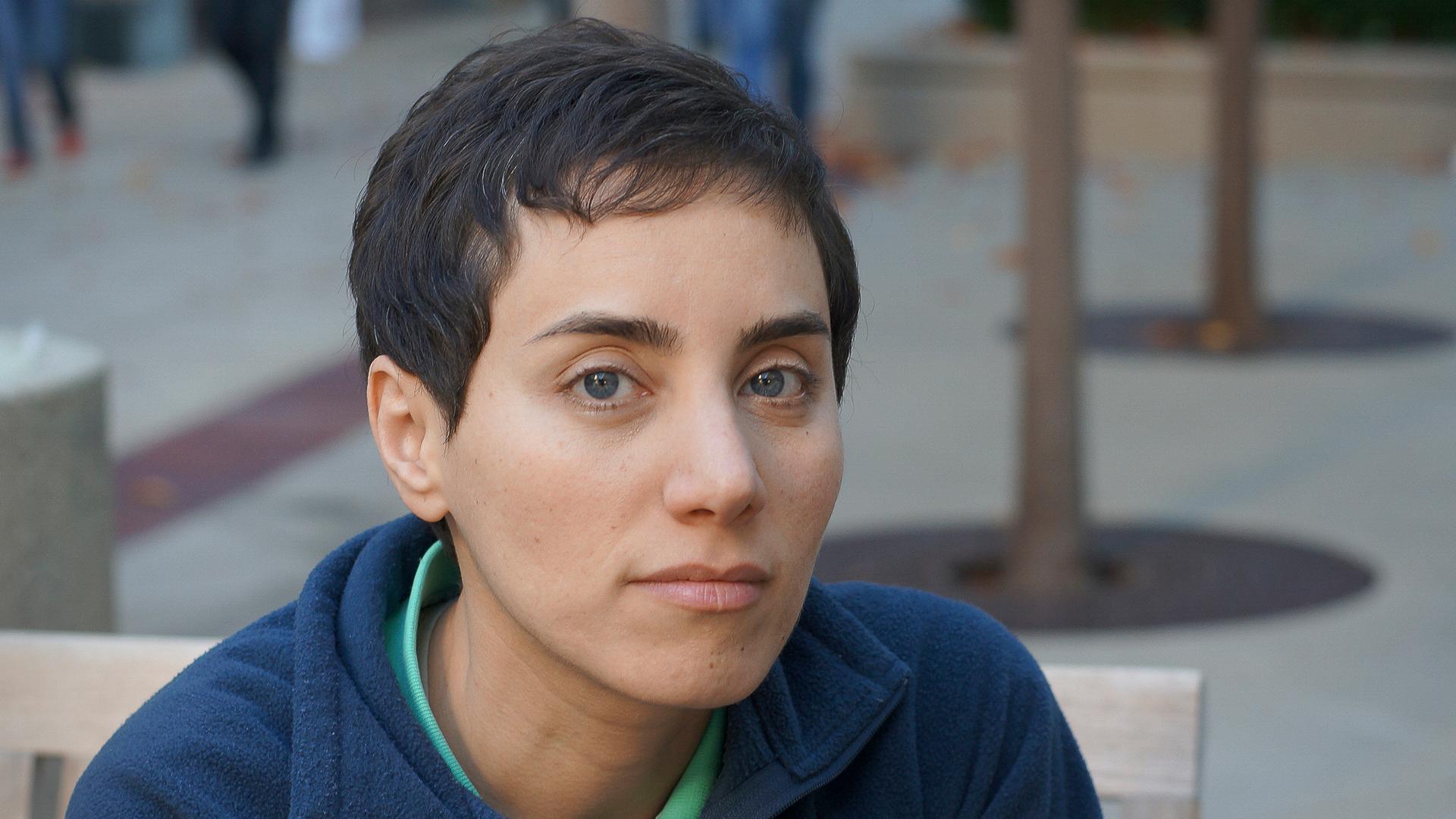Maryam Mirzakhani is the first woman to win the Fields Medal for math. She is also the first Iranian to win the prize.
Growing up in Iran, the newest winner of math's most prestigious award wasn't even especially fond of the subject. She wanted to be a writer.
But then, says Maryam Mirzakhani in a video from the International Mathematical Union, she stumbled upon math and "I got excited about it — maybe just as a challenge. But then I realized that it's really nice and that I enjoy it.
Mirzakhani started to devote more of her time to studying math and solving problems. Soon she was competing in major national and international competitions, and now she is the winner of the Fields Medal. It's akin to the Nobel Prize for math, and she's both the first woman and the first Iranian to win it.
"There are no words to describe it," says Ghazal Geshnizjani, a friend of Mirzakhani's who teaches at University of Waterloo in Canada. She says she was speechless when she heard the news of her friend's victory.
Geshnizjani still remembers the days when the two women were competing in math competitions in Iran. "I knew she was good at math, but I looked at her during the exam and I saw her really focused on the task at hand," she says.
Mirzakhani kept up that passion even through a deadly bus crash on the way to one competition. "I remember very clearly when I heard the news how I felt and how terrible it was," Geshnizjani says. She doesn't remember the number exactly, but thinks that eight of perhaps 13 students on the bus were killed.
Mirzakhani and a few other friends survived the crash, and she went on to earn a Ph.D. at Harvard. She then moved on to Stanford, where she teaches today and conducted the work that led to the medal.
But the Fields Medal isn't just about Mirzakhani's own accomplishment, says Geshnizjani. She hopes the prize will spur more women to study math and science.
"Maryam did her Ph.D. at a time when Larry Summers was the president of Harvard and was claiming that women are not good in math. And there she is, proving him wrong," she says. In a statement after her award was announced, Mirzakhani said she was "sure there will be many more women winning this kind of award in coming years."
But setting aside the gender politics, Geshnizjani says she's just proud of her friend. "This is fantastic on so many levels. If it was another woman from another country I would still be ecstatic. If it was a male Iranian, that, again, by itself would be such a great news. And somebody from a third-world country by itself is such a big achievement," she says.
For her it's a combination of "all these joys and celebrations together."
Growing up in Iran, the newest winner of math's most prestigious award wasn't even especially fond of the subject. She wanted to be a writer.
But then, says Maryam Mirzakhani in a video from the International Mathematical Union, she stumbled upon math and "I got excited about it — maybe just as a challenge. But then I realized that it's really nice and that I enjoy it.
Mirzakhani started to devote more of her time to studying math and solving problems. Soon she was competing in major national and international competitions, and now she is the winner of the Fields Medal. It's akin to the Nobel Prize for math, and she's both the first woman and the first Iranian to win it.
"There are no words to describe it," says Ghazal Geshnizjani, a friend of Mirzakhani's who teaches at University of Waterloo in Canada. She says she was speechless when she heard the news of her friend's victory.
Geshnizjani still remembers the days when the two women were competing in math competitions in Iran. "I knew she was good at math, but I looked at her during the exam and I saw her really focused on the task at hand," she says.
Mirzakhani kept up that passion even through a deadly bus crash on the way to one competition. "I remember very clearly when I heard the news how I felt and how terrible it was," Geshnizjani says. She doesn't remember the number exactly, but thinks that eight of perhaps 13 students on the bus were killed.
Mirzakhani and a few other friends survived the crash, and she went on to earn a Ph.D. at Harvard. She then moved on to Stanford, where she teaches today and conducted the work that led to the medal.
But the Fields Medal isn't just about Mirzakhani's own accomplishment, says Geshnizjani. She hopes the prize will spur more women to study math and science.
"Maryam did her Ph.D. at a time when Larry Summers was the president of Harvard and was claiming that women are not good in math. And there she is, proving him wrong," she says. In a statement after her award was announced, Mirzakhani said she was "sure there will be many more women winning this kind of award in coming years."
But setting aside the gender politics, Geshnizjani says she's just proud of her friend. "This is fantastic on so many levels. If it was another woman from another country I would still be ecstatic. If it was a male Iranian, that, again, by itself would be such a great news. And somebody from a third-world country by itself is such a big achievement," she says.
For her it's a combination of "all these joys and celebrations together."
We want to hear your feedback so we can keep improving our website, theworld.org. Please fill out this quick survey and let us know your thoughts (your answers will be anonymous). Thanks for your time!
